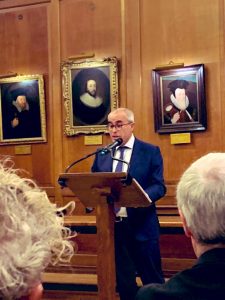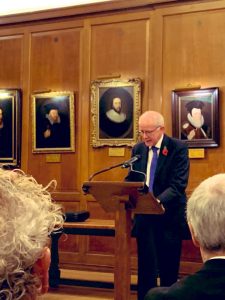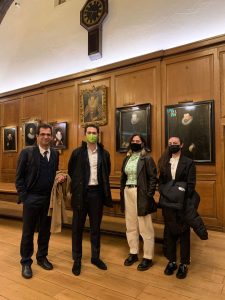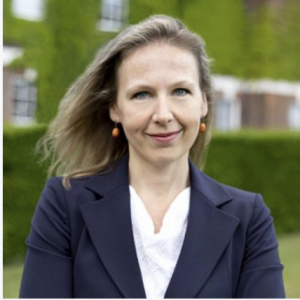
Dr Dagmar Myslinska was recently asked to join the board of trustees of the Migrants’ Rights Network. MRN works with and for migrant communities, by engaging in various campaign and policy projects to effectuate a more just and equal society for all migrants. In addition to influencing stakeholders and effectuating structural change, MRN builds alliances with individuals and organisations so that migrants are adequately represented at all levels of society. Its dynamic approach relies on a plurality of methods in pursuit of real change, including strengthening and supporting migrant leadership and the capacity of the organisations that work with migrants; engaging in policy and advocacy projects; and pursuing collective action and legal approaches.
Dagmar is honoured to help guide this visionary NGO’s long-term strategy, contributing to the fight to secure for all migrants the rights to which they are entitled.
As a trustee, Dagmar will collaborate with other board members to help ensure that MRN is achieving its objectives while complying with its governing document and other legal requirements. She is honoured to help guide this visionary NGO’s long-term strategy, contributing to the fight to secure for all migrants the rights to which they are entitled.
Among other key activities in the area of immigration law and human rights, Dagmar is convening the Immigration Law module in Year of the LLB programme and our Immigration Law & Policy Clinic, while she also supports the activities of Goldsmiths Law students who are working for the University of London’s Refugee Law Clinic. These are important areas for our Law programme, in line with our close, activist engagement as a Law programme with human rights and social justice.
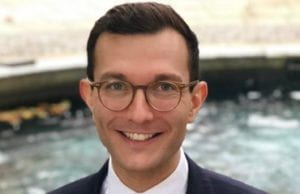 In the November 2021 issue of the Cambridge Law Journal, junior barrister at leading chambers Fountain Court, and Associate Lecturer in our department,
In the November 2021 issue of the Cambridge Law Journal, junior barrister at leading chambers Fountain Court, and Associate Lecturer in our department, 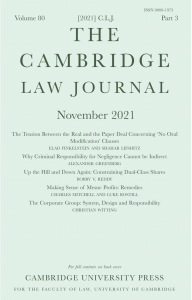 tion for his or her personal advantage, typically to the disadvantage of his or her principal. In these circumstances, the agent is generally described as a fiduciary, and the receipt of a bribe of secret commission as a breach of fiduciary duty. But the requirement that the bribed agent be a fiduciary has often required the court to expand the definition of a fiduciary relationship, giving practical justice at the expense of principle. As the Court of Appeal noted in Wood v Commercial First Business Limited; Business Mortgage Finance 4 PLC v Pengelly [2021] EWCA Civ 471, at [46], it required the term ‘fiduciary duty’ to “be applied so widely as virtually to deprive it of content”. In these conjoined appeals, the court was asked to determine the whether the fiduciary requirement is good law. It held that it is not.
tion for his or her personal advantage, typically to the disadvantage of his or her principal. In these circumstances, the agent is generally described as a fiduciary, and the receipt of a bribe of secret commission as a breach of fiduciary duty. But the requirement that the bribed agent be a fiduciary has often required the court to expand the definition of a fiduciary relationship, giving practical justice at the expense of principle. As the Court of Appeal noted in Wood v Commercial First Business Limited; Business Mortgage Finance 4 PLC v Pengelly [2021] EWCA Civ 471, at [46], it required the term ‘fiduciary duty’ to “be applied so widely as virtually to deprive it of content”. In these conjoined appeals, the court was asked to determine the whether the fiduciary requirement is good law. It held that it is not.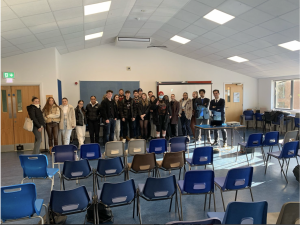
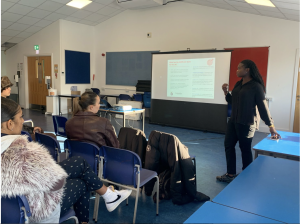
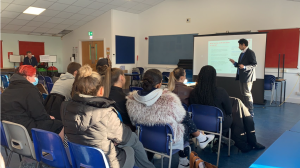
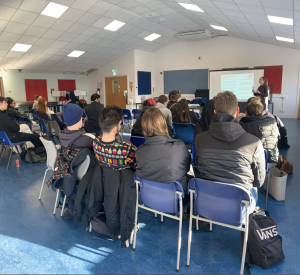
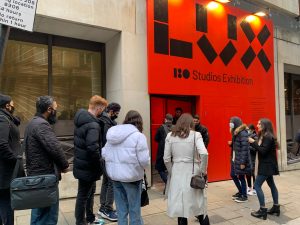


 The audiovisual exhibition featured AI-generated art, neural networks and other forms of art and cutting-edge technology, all of which are particularly relevant to the innovative LLB curriculum at
The audiovisual exhibition featured AI-generated art, neural networks and other forms of art and cutting-edge technology, all of which are particularly relevant to the innovative LLB curriculum at 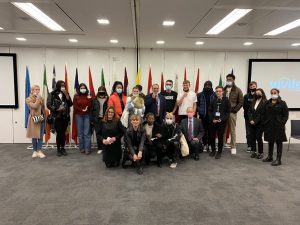
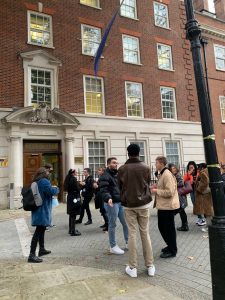 On the 15th of November, it was the EU Law class’s turn to go on a study trip in London. A very enthusiastic group of year 2 students who take the module went to Westminster to visit Europe House, where the
On the 15th of November, it was the EU Law class’s turn to go on a study trip in London. A very enthusiastic group of year 2 students who take the module went to Westminster to visit Europe House, where the 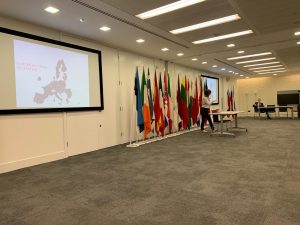 We then entered the impressive Europe House; 27 flags now there in the main meeting room – the UK flag no longer there – a quick and simple visual illustration of the impact of a highly complex process, political and legal, of withdrawing from the EU!
We then entered the impressive Europe House; 27 flags now there in the main meeting room – the UK flag no longer there – a quick and simple visual illustration of the impact of a highly complex process, political and legal, of withdrawing from the EU!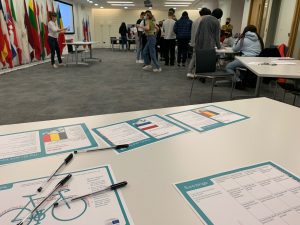 We were then joined by
We were then joined by 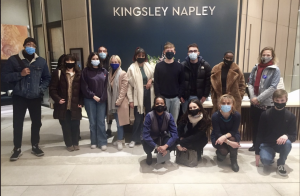 As part of their commercial awareness and career development study trips embedded within the Immigration Law module, our LLB students recently got a chance to visit
As part of their commercial awareness and career development study trips embedded within the Immigration Law module, our LLB students recently got a chance to visit 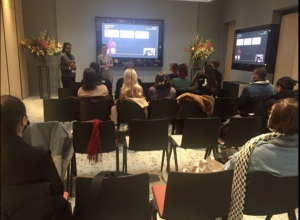
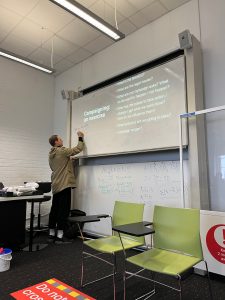 n international NGO that campaigns for fair and equal criminal justice systems. Their work involves research, campaigning for law reform, supporting strategic litigation and building partnerships with lawyers, activists, academics and other NGOs. Griff leads on Fair Trials’ work on the use of AI in criminal justice. Previously, he was a legal and policy officer at
n international NGO that campaigns for fair and equal criminal justice systems. Their work involves research, campaigning for law reform, supporting strategic litigation and building partnerships with lawyers, activists, academics and other NGOs. Griff leads on Fair Trials’ work on the use of AI in criminal justice. Previously, he was a legal and policy officer at 
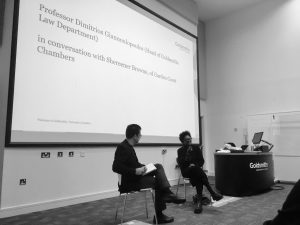 Students at the launch event had the opportunity to participate in a range of activities including Professor Dimitrios Giannoulopoulos (Head of Goldsmiths Law Department) in conversation with Shereener Browne, of Garden Court Chambers which helped raise awareness of pathways, career opportunities and provide an understanding of what it is like to study Law at Goldsmiths.
Students at the launch event had the opportunity to participate in a range of activities including Professor Dimitrios Giannoulopoulos (Head of Goldsmiths Law Department) in conversation with Shereener Browne, of Garden Court Chambers which helped raise awareness of pathways, career opportunities and provide an understanding of what it is like to study Law at Goldsmiths.